Born near Balclutha, New Zealand in 1940, David Baragwanath studied at the University of Auckland before going to Oxford to read for the degree of Bachelor of Civil Law. Returning to New Zealand, he began his career as a lawyer, and was appointed Queen’s Counsel in 1983. He has been a judge of the High Court at Auckland, a member of the Court of Appeal of New Zealand, part-time presiding judge of the Court of Appeal of Samoa, a New Zealand member of the Permanent Court of Arbitration in The Hague, and President of the New Zealand Law Commission. Between 2011 and 2015, Baragwanath served as president of the United Nations Special Tribunal for Lebanon. He has written widely about national and international human rights issues and the rule of law and has given lectures in universities in the United Kingdom, including residential periods in Cambridge and Queen Mary University of London, and in Hong Kong, China, Lebanon, France, Germany, The Netherlands, Denmark. In 2011, he was appointed a Knight Companion of the New Zealand Order of Merit for services as a judge to the Court of Appeal. Baragwanath is a strong supporter of the Rhodes Scholarship and in 2014/15 was one of the inaugural recipients of the Rhodes Trust’s George Parkin Distinguished Service Awards. This narrative is excerpted from an interview with the Rhodes Trust on 6 March 2025.
David Baragwanath
New Zealand & Balliol 1964
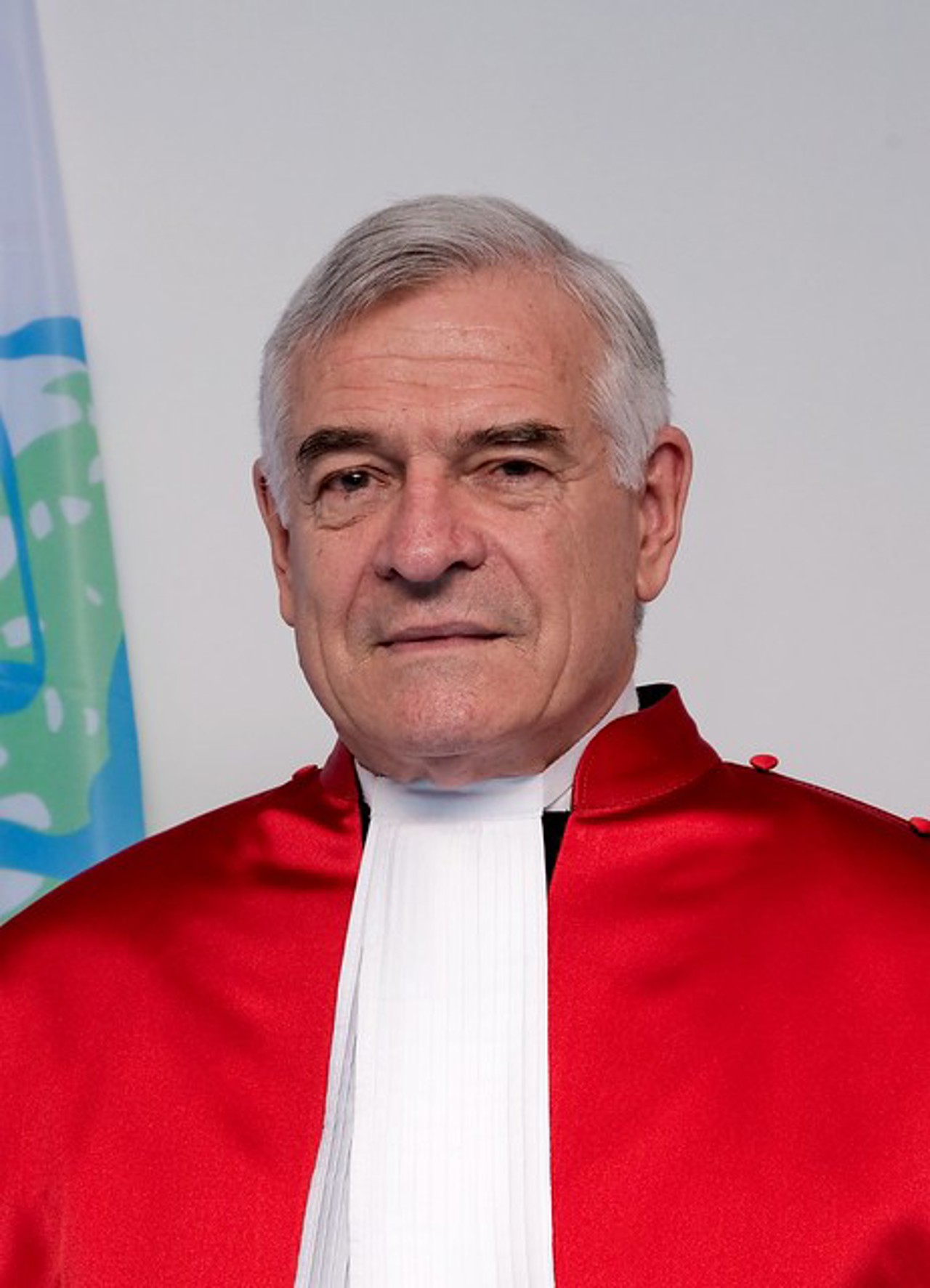
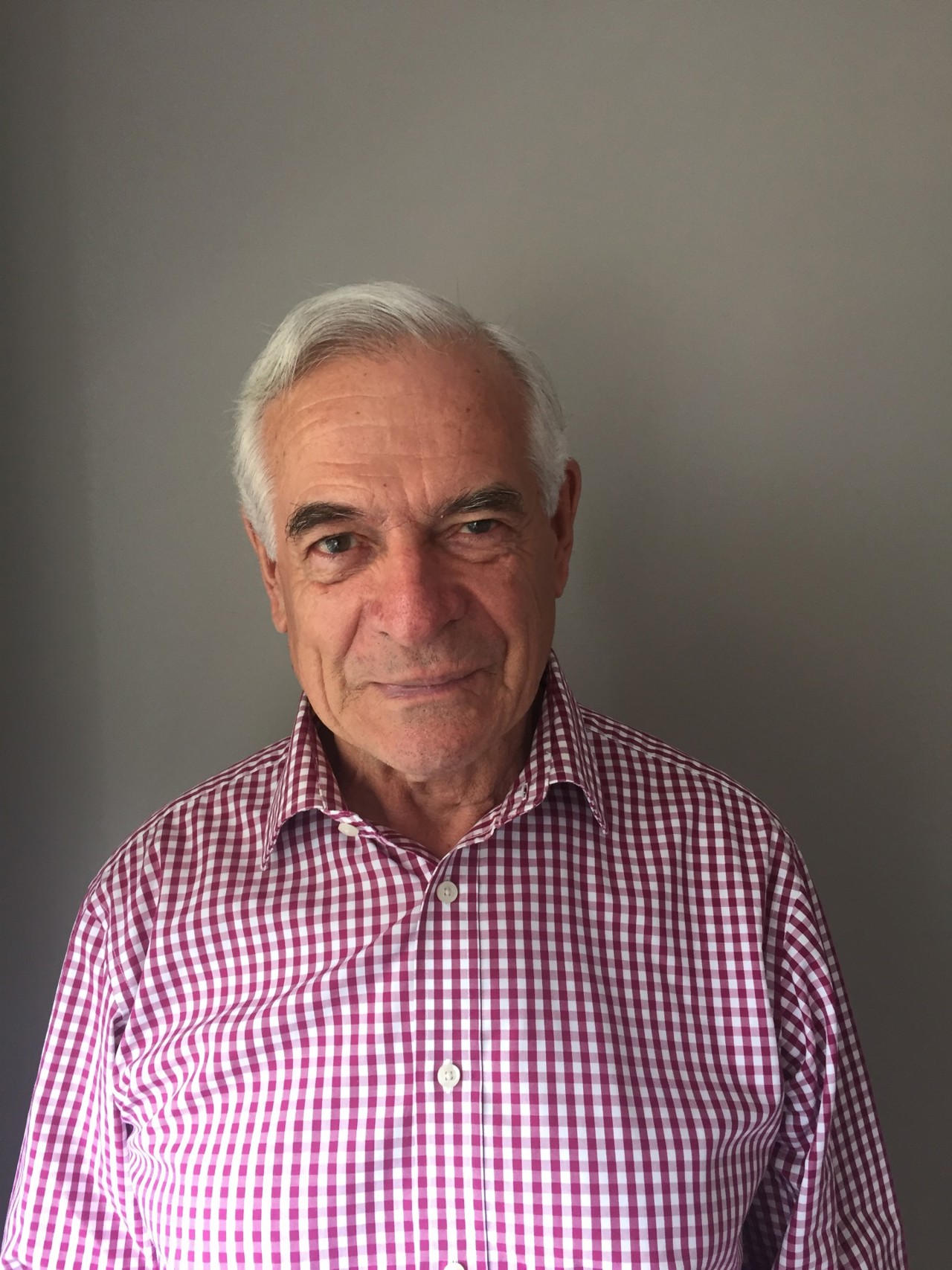
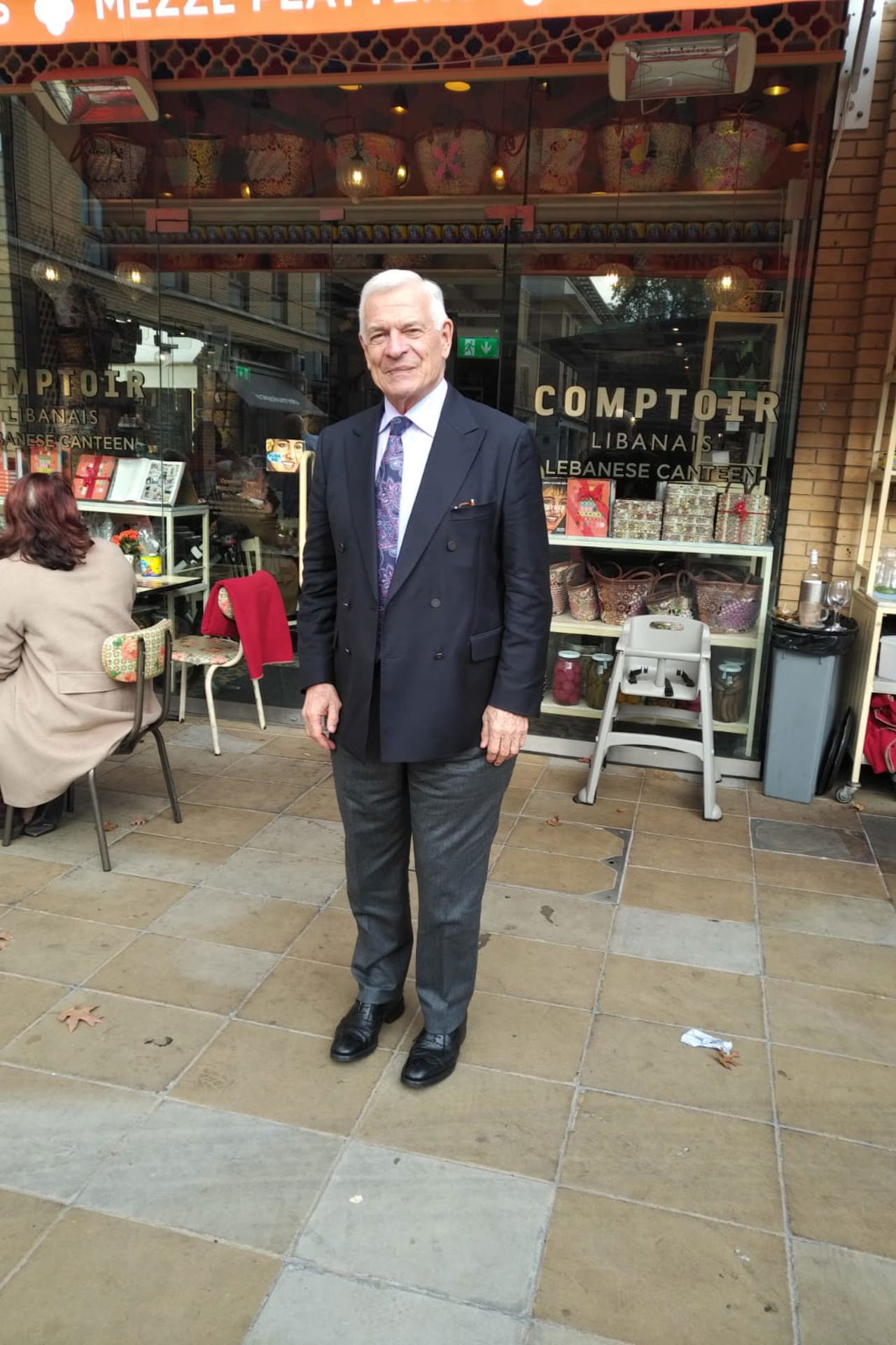
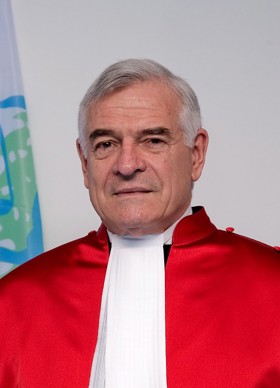
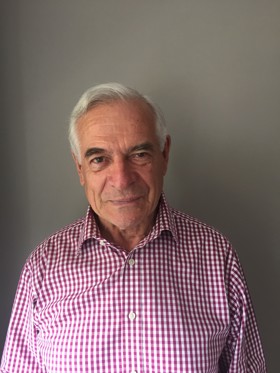

‘Rugby was my favourite’,
I was born during the war and for the first part of my life I lived with my mother and my grandparents. My father was the minister at the Presbyterian Church at Andersons Bay in Dunedin and when he came back from the war he introduced me to rugby and to Gilbert and Sullivan. I’ve enjoyed music ever since and have sung in choirs in The Hague and in Switzerland. As a child, I also learned to shoot, swim and sail with the Sea Scouts.
I received very good teaching at Andersons Bay primary school and again, when we moved to Auckland, at Normal Intermediate and then Auckland Grammar School. I greatly enjoyed sport, and rugby and hurdling were my favourites. Academically I was really fortunate with English, Latin, French and German, which I continued at the University of Auckland for a year full-time before I went part-time as a law clerk for the next four years.
On applying for the Rhodes Scholarship
I chose law, preferring humanities to science and maths, and I didn’t have my father’s call to the church. Law looked interesting and that’s what it’s proved. My doctor, with a comforting smile, told me that although I could choose to continue with rugby, because I’d had too much concussion, I would then be unable to do law.
Between early morning and late afternoon lectures I was employed at Merediths by Sir Graham Speight, the Crown solicitor who went on to become a judge. His older brother was a Rhodes Scholar [Murray Speight (New Zealand & Balliol 1940)] who had been killed serving in the war. I had also seen the list of Rhodes Scholars on the Auckland Grammar honours board and applied for the Scholarship. The Governor-General Sir Bernard Fergusson, who had twice led expeditions behind enemy lines in Burma, brought home life’s realities: “Baragwanath have you ever felt yourself to be near death?”
‘You always need to make up your own mind’
Oxford is a phenomenal place. My tutor, Don Harris, was inspirational. He helped me realise that humanity requires a broad and international experience of human difference. He also taught me that there is no such thing as law beyond what humans have created. That means you need constantly to review whether or not the law you’re applying is just. Don was an original thinker and emphasised that on any issue you always need to make up your own mind.
I studied in the library every morning, rowed every afternoon, and made wonderful friends. At Rhodes House meeting the Warden, Brigadier Sir Edgar (Bill) Williams, was an extraordinary experience. He had proposed to Montgomery how he could win the Battle of El Alamein by changing the direction of the Allied attack, and the result was to turn around the war in North Africa. He was also the scholar who, like its inspiration James Stephen of the Colonial Office, identified what the Treaty of Waitangi of 1840 actually signifies. It was by that treaty that the New Zealand indigenous Māori people passed their sovereignty, which three British statutes had recognised, to Queen Victoria. Today, there’s much debate in New Zealand over this vital topic.
‘I learned from an unhappy initial performance’
Before Oxford, in my first case after admission to the bar in New Zealand in 1964 I had had what proved an unhappy experience. I was acting for the government as respondent to an appeal by two Māori who had been convicted by a lower court of taking shellfish without a permit. I discovered and cited a two judge decision from 1913 which supported my argument and the appeal was dismissed. 25 years later, I was instructed on behalf of the Tribe that these two young men belonged to and some other Tribes as well, to resist the policy of a new government to privatise all the fishing rights, as well as more than half of New Zealand’s land area. It was an enormous case and I found to my dismay that in the submissions I had made in that earlier case I had been quite wrong. The 1913 judgment had applied what is now the most condemned decision in New Zealand legal history – of Chief Justice Prendergast in Wi Parata v Bishop of Wellington (1877) 3 NZ Jurist Reports (New Series) 72 declaring the 1840 Treaty of Waitangi a nullity. The deal done under the Treaty was that Māori should have, as well as the rights of ordinary British subjects, protection of their lands, estates, forests and fisheries. I should have known that; as Crown counsel I was supposed to have done my homework. I told the Court of Appeal that my earlier submissions had been untenable; they reversed the jurisprudence relied on in 1964. But my support of the 1913 decision had kept Māori out of their fishing rights for a quarter of a century.
I very much wish I had known what my Oxford tutor Don Harris, another New Zealander, was soon to teach me - that you never simply rubber stamp what somebody else has said. Despite (or perhaps, knowing and respecting the Māori leader and innovator Matiu Rata, because of) that initial unhappy performance, I acted for the Māori for a good deal of time until I became a judge, including in the big case already mentioned over land and fishing rights. That Māori were successful in that was in large measure due to the genius of the Māori leaders. They included women of notable ability and distinction, including Ngapare Hopa, the first Māori woman doctoral graduate in Oxford, who welcomed me there. Dame Whina Cooper both led the land march that enabled Matiu Rata to create the Waitangi Tribunal, whose reports were vital to the litigation, and authored her own affidavit that appeared to me on Day 3 of the hearing to turn Sir Robin Cooke’s analysis from intellect to soul. Another, Nganeko Minhinnick, has received little public attention. But this quietly spoken, formidably intelligent woman had been the impetus behind the innovating Manukau Tribunal claim to which the later Chief Justice, Dame Sian Elias and the Balliol Rhodes Scholar David V Williams, lent their support. It was Nganeko who drew attention to the fact that on 30 September 1986, the Deputy Prime Minister, the Rt Hon Geoffrey Palmer, had introduced the State-Owned Enterprises Bill. The Bill was about to pass to a third reading. Fortuitously the Tribunal was sitting. We invited it to intervene. It recommended and secured addition to the measure section 9 which provided:
9. Treaty of Waitangi - Nothing in this Act shall permit the Crown to act in a manner that is inconsistent with the principles of the Treaty of Waitangi..
Fortunately Nganeko was unhappy with the form of the legislation. The chairman of the New Zealand Māori Council, Sir Graham Latimer, made the bold decision to put on the line his and his family's personal security by becoming a plaintiff and exposing himself to both costs and potential liability on an undertaking as to damages. Her and his courage and determination were outstanding features of the case.
What I did not know then was the formidable influence on Māori and New Zealand achievement and enthusiasm for Oxford of Mākariti Papakura, the first Māori woman to complete a D Phil, conferment of which was long delayed by her premature death, until a change of policy this year.
Working with Māori has been an extraordinary experience, not only for the legal but the human side. I am no expert – it’s very difficult for someone who hasn’t been born and brought up as Māori to have an adequate appreciation of their culture. But access to their values and example has been very precious. It included learning from Simon Snowden DFC, CBE, QSM and Polish Cross, RAF veteran and tribal leader of Ahipara in the Far North, that my cross-examination of a Crown witness before the Waitangi Tribunal while attempting to prepare for the Treaty litigation was not of an opponent – something he well understood - and had lacked the courtesy and consideration required of the honour of representing the mana of the marae and its people.
Another extraordinary privilege has been my time at The Hague, serving on the United Nations Special Tribunal for Lebanon. Some of the most important legal principles that we apply in the courts come from Roman law which was formulated in what is now Lebanon and Syria. But Lebanon has faced many problems. The Tribunal was set up to prosecute those responsible for the assassination of its former and then likely future prime minister, Rafiq Hariri. For a time, I was president of the Tribunal, when the jurisdiction of the UN Security Council in Lebanon was being challenged. While that jurisdiction is not unlimited – it must be concerned with peace and good government – there are instances when a crime committed in a country has repercussions that go beyond that country’s borders, and this was such a case.
‘There is a need for lawyers to exhibit more energy and imagination’
Throughout my career, I’ve been motivated by what Don Harris taught me and by the realities of injustices that continue in international law and elsewhere. The oath I took as a judge was to do right to all manner of people and to do so according to the laws and usages of the realm. In other words, you learn what is the law because you have been preceded by people of enormous ability. But while you do not lightly cast aside what they’ve done, if you’re satisfied that they’re wrong then it’s your duty to deal with that.
Now retired as a judge I’ve written about international law, including Ukraine and Gaza and also New Zealand’s Treaty of Waitangi. In all of these areas I recognise my own limitations. The law has had its geniuses and some outstanding members of the International Court of Justice and other tribunals, but there is compelling need for lawyers to exhibit more energy and imagination in considering and contributing to what the law can do. I regard the abuse of power as a primary pathogen requiring urgent response, of which the science of law is an essential immunising element. But the wisdom and experience of non-lawyers, not least those with power to improve and apply the law, is also vital to lift its performance which is essential to human decency.
